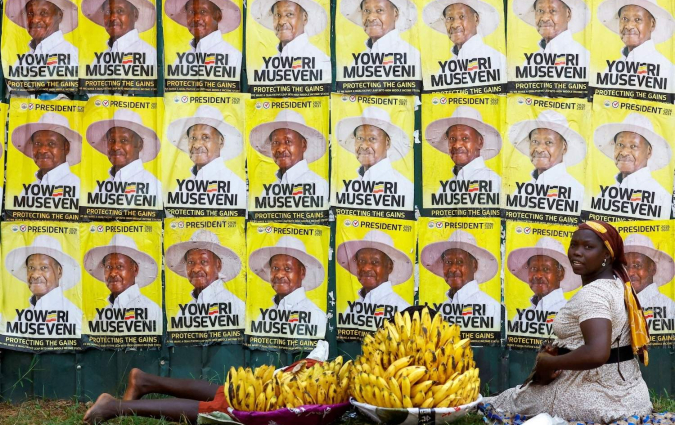Here are the panels, presentations and posters at ICA 2025 featuring researchers from the Reuters Institute

The 75th annual conference of the International Communication Association takes place in Denver, USA, this week. Several of our researchers will be presenting some of their research papers and will be speaking on panels to discuss issues such as attitudes to AI, academic podcasts, news and climate, and trust in news. Find the abstracts below.
What Influences Attitudes Towards the Use of Generative AI in News?
Richard Fletcher, Felix Simon, Waqas Ejaz, Rasmus Kleis Nielsen
Journalists and media globally are integrating generative AI into their work, but the public remains skeptical about its use in news production. Using survey data from 12,000 respondents across six countries, we explore attitudes towards generative AI in news. We find that younger people are more likely to believe generative AI will make news better, with the same true for men and those with higher levels of education in a limited number of cases. However, structural equation modelling reveals these associations are at least partially mediated by three factors: a positive outlook on their country’s future, comfort with technology, and in particular, personal experience of using generative AI—each more predictive than demographics alone.
We thus find that public acceptance of AI in journalism, and its effect on trust in news, are shaped by personal experiences with AI, perceptions of technology, and a general outlook on the future—all factors which are partially influenced by media coverage, too. Our analysis offers insights into how public perceptions of generative AI are formed and what factors influence their acceptance in news contexts.
Journalism Studies > Audience Perceptions of News Authored By Artificial Intelligence
13 June, 09:00-10:15, Grays Peak B (Grand Conv Center 2)
The Longitudinal Dynamics of News Trust and Platform Use During the COVID-19 Pandemic [Poster. Adjusted title]
Tali Aharoni, Rasmus Kleis Nielsen, Richard Fletcher
Communication research has long documented the impact of trust on news use, yet how this relationship evolves over time – especially across different sources – remains unclear. This study examines how source-specific news use shaped citizens’ trust in news during the early stages of the COVID-19 pandemic, distinguishing between traditional and digital media.
Using five waves of panel survey data from the UK (N = 1,645), we apply a Random Intercept Cross-Lagged Panel Model (RI-CLPM) to trace the evolving dynamics between trust and news use. Frequent use of legacy media (television, print, online news) was linked to increased trust over time, indicating a media effect. Television news, in particular, showed a reciprocal relationship with trust, suggesting a reinforcing spiral. In contrast, general news use and social media use were not associated with growing trust. These findings contribute to ongoing debates about the role of trust in contemporary media environments. [adjusted abstract]
Political Communiction > Poster session
13 June, 13:30- 16:45; Registration 70 Centennial Foyer (Regency 3)
How News Media, Climate Anxiety, and Trust Shape Pro-Climate Behaviour Across Eight Countries
Waqas Ejaz, Mary Sanford, Richard Fletcher
The news media serves as a primary source of public information on climate change and has been associated with promoting pro-climate attitudes and behaviours. However, previous research has disproportionately focused on WEIRD (Western, Educated, Industrialised, Rich, and Democratic) countries, often examining only the direct relationship between media use and pro-climate outcomes. This focus frequently overlooks non-WEIRD, often more vulnerable, nations and fails to account for mediating and moderating factors that may influence this relationship.
This study seeks to move beyond prior limitations by including a diverse online survey sample (N = 8,541) from high-income countries in North America (US), Western Europe (France, Germany, UK), and East Asia (Japan), as well as from an upper-middle-income country in South America (Brazil) and lower-middle-income countries in South Asia (India and Pakistan). We examine how trust in media moderates the relationship between climate change news consumption and pro-climate behavioural intentions, with climate anxiety acting as a mediator.
Our findings indicate that media consumption alone is not associated with pro-climate behavioural intentions. Instead, it is the interaction between media use, climate anxiety, and media trust that shapes these intentions, with distinct effects observed between mainstream and non-mainstream media. Furthermore, cross-country variations highlight the differential impacts of media consumption, trust, and climate anxiety on pro-climate behaviour intentions, emphasising the importance of cultural context in understanding how media engagement influences climate-related actions on a global scale.
Global Communication and Social Change > Environmental Communication: Awareness, Behavior, Algorithms, and Platforms
Virtually presented on 14 June 14:00 BST
Al in Journalism: What Do We Know and What Are We Missing? [Panel]
Seth Lewis, Rodrigo Zamith, Ralph Schroeder, Felix M. Simon, Joanne Kuai, Nadja Schaetz, Tomás Dodds
Ralph Schroeder; Felix Simon: 'Al, News, and the Public Arena: Mapping the Issues and an Agenda for Research'
Joanne Kuai: 'Smoke and Mirrors: Gaps Between Visions and Realities of Journalistic Al Deployment in the Chinese News Industry'
Nadja Schaetz: 'Generative Al and the Politics of Provenance Loss'
Tomás Dodds: 'Integrating Al Into Journalism Education: Challenges and Opportunities in Latin American Schools'
Journalism Studies
14 June, 13:30-14:45; Colorado A (Grand 2)
Amplifying diverse voices and increasing societal impact of communication research through podcasts [Panel]
Elizabeth Dubois, Emese Domahidi, Sibo Chen, Mora Matassi, Amy Ross Arguedas, and Alfred Hermida
Podcasts are an innovative approach to public scholarship which increase the reach, accessibility and social impact of scholarly work. In this panel, podcast hosts, producers and guests reflect on the ways that academic podcasts can help knowledge users better understand complex topics, amplify diverse voices, and foster relationships among knowledge users. Each panellist uses their experience podcasting to highlight different ways this format can serve to extend the reach and societal impact of communication research.
Elizabeth Dubois presents “Wonks and War Rooms,” a political communication podcast focused on connecting theory and practice.
Emese Domahidi presents “What is it about CCS?,” a computational communication podcast exploring the impact of ‘big data’ and algorithms on communication.
Sibo Chen presents "Common Concern: Conversations on Anti-Asian Racism in the Wake of COVID-19," which features interviews with researchers and practitioners sharing their perspectives on pandemic-related racism and its lasting impact.
Mora Matassi presents “El Café Latinx,” which documents the experiences of being a Latinx or Latin American scholar in the field of communication and media studies.
Amy Ross Arguedas offers insight into who listens to podcasts based on the Reuters Institute Digital News Report. She also talks about her experience as a guest on multiple podcasts.
Alfred Hermida is the Moderator and Discussant. He helped establish one of the first BBC World Service podcasts in 2001, and is a leading scholar on journalism innovation, with extensive knowledge mobilization experience. This panel is gender balanced and includes scholars at varied career stages from PhD student to Full Professor based at universities in Europe, North America and South America. They research and publish in English, French, German and Spanish.
ICA@75 theme session
15 June, 9:00-10:00; Centennial E (Regency 3)
In every email we send you'll find original reporting, evidence-based insights, online seminars and readings curated from 100s of sources - all in 5 minutes.
- Twice a week
- More than 20,000 people receive it
- Unsubscribe any time






